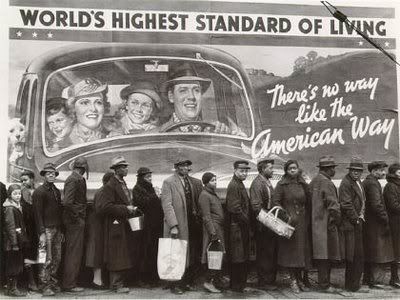In an a cover story for Time magazine, journalist Steven Brill spent seven months examining how medical bills are what is really killing us: the extraordinary costs of health care is a “bitter pill” that nickels and dimes even the insured patient for every pill, band-aid and blanket:
Simple lab work done during a few days in the hospital can cost more than a car. A trip to the emergency room for chest pains that turn out to be indigestion brings a bill that can exceed the price of a semester at college. When we debate health care policy in America, we seem to jump right to the issue of who should pay the bills, blowing past what should be the first question: Why exactly are the bills so high? [..]
· Hospitals arbitrarily set prices based on a mysterious internal list known as the “chargemaster.” These prices vary from hospital to hospital and are often ten times the actual cost of an item. Insurance companies and Medicare pay discounted prices, but don’t have enough leverage to bring fees down anywhere close to actual costs. While other countries restrain drug prices, in the United States federal law actually restricts the single biggest buyer-Medicare-from even trying to negotiate the price of drugs.
· Tax-exempt “nonprofit” hospitals are the most profitable businesses and largest employers in their regions, often presided over by the most richly compensated executives.
· Cancer treatment-at some of the most renowned centers such as Sloan-Kettering and M.D. Anderson-has some of the industry’s highest profit margins. Cancer drugs in particular are hugely profitable. For example, Sloan-Kettering charges $4615 for a immune-deficiency drug named Flebogamma. Medicare cuts Sloan-Kettering’s charge to $2123, still way above what the hospital paid for it, an estimated $1400.
· Patients can hire medical billing advocates who help people read their bills and try to reduce them. “The hospitals all know the bills are fiction, or at least only a place to start the discussion, so you bargain with them,” says Katalin Goencz, a former appeals coordinator in a hospital billing department who now works as an advocate in Stamford, CT.
Mr. Brill was a guest on MSNBC’s “The Last Word“, he discussed with guest host Ezra Klein the costs of health care, who’s to blame and how we can fix the US broken health care system:






 Rob Johnson is the Director of the Economic Policy Initiative at the Franklin and Eleanor Roosevelt Institute and is a regular contributor to the Institute’s blog NewDeal2.0. He serves on the UN Commission of Experts on Finance and International Monetary Reform. Previously, Dr. Johnson was a Managing Director at Soros Fund Management where he managed a global currency, bond and equity portfolio specializing in emerging markets. He was also a Managing Director at the Bankers Trust Company. Dr. Johnson has served as Chief Economist of the US Senate Banking Committee under the leadership of Chairman William Proxmire and was Senior Economist of the U.S. Senate Budget Committee under the leadership of Chairman Pete Domenici. Dr. Johnson was an Executive Producer of Taxi to the Dark Side, an Oscar Winning documentary produced and directed by Alex Gibney.
Rob Johnson is the Director of the Economic Policy Initiative at the Franklin and Eleanor Roosevelt Institute and is a regular contributor to the Institute’s blog NewDeal2.0. He serves on the UN Commission of Experts on Finance and International Monetary Reform. Previously, Dr. Johnson was a Managing Director at Soros Fund Management where he managed a global currency, bond and equity portfolio specializing in emerging markets. He was also a Managing Director at the Bankers Trust Company. Dr. Johnson has served as Chief Economist of the US Senate Banking Committee under the leadership of Chairman William Proxmire and was Senior Economist of the U.S. Senate Budget Committee under the leadership of Chairman Pete Domenici. Dr. Johnson was an Executive Producer of Taxi to the Dark Side, an Oscar Winning documentary produced and directed by Alex Gibney.
Recent Comments